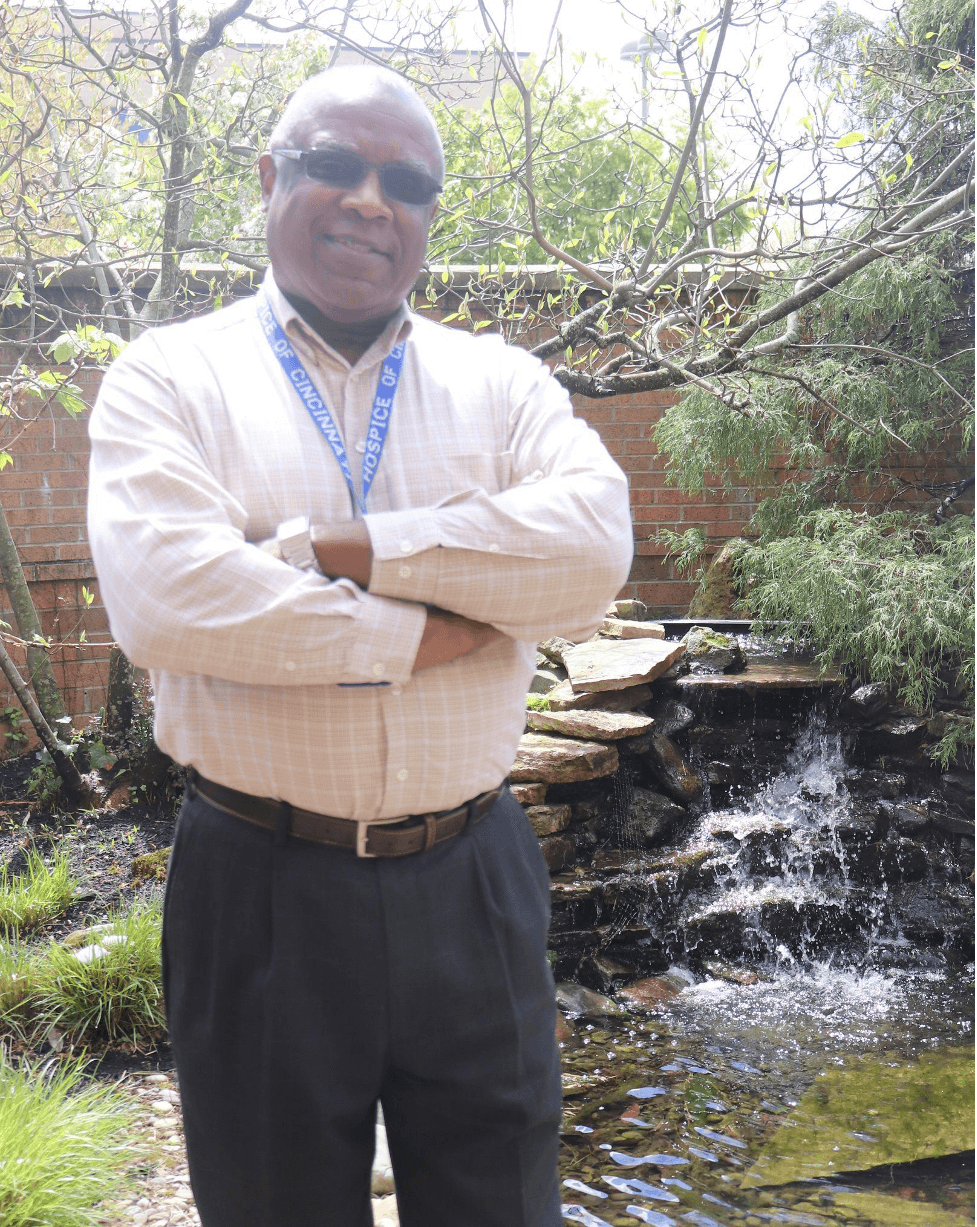“It’s a sacred experience, to be invited into a patient’s life and walk this journey with them,” says Chaplain Levi Gause, ThM, BCC, who serves patients at Hospice of Cincinnati’s Margret J. Thomas Inpatient Care Center in Blue Ash. His words echo a common refrain among people who work in end-of-life care, reflecting the sanctity of being present to someone when death is near.
Chaplains are critical members of the hospice care team, providing spiritual support to patients, their families and caregivers. They help ease feelings of isolation, and guide patients to recall those things – like moments, values, faith, relationships and work – that have given their life meaning.
For Gause, this calling started in him as a young man and continues to this day. The son of a pastor, Gause would accompany his father on hospital visits, and he chose to follow his father into ministry. He has been a minister for more than 46 years, including serving as a church pastor. He was a chaplain at Good Samaritan Hospital for eight years and then transitioned to Hospice of Cincinnati.
“I still enjoy preaching and teaching,” he says, “but I wanted to expand my sphere of influence beyond the pulpit I currently occupy. It can be a challenge from week to week trying to address needs solely through weekly Sunday service. It’s like trying to put water into Coke bottles using a fire hydrant. Instead of filling up the bottles, you keep knocking the bottles over. This (working as a chaplain in the health care arena) is an opportunity to serve people during their time of greatest need, up close and personal, with an eyedropper.”
Hospice chaplains serve patients of all faith beliefs, talking about what matters to them, praying, playing music and/or reading the Bible with them, or just sitting in silence, if that’s what the patient needs most. “I ask them, ‘how is your faith being supportive to you right now?’ ‘Currently, what brings meaning and purpose to your life?’” Gause says. “I meet and work with people where they are. I don’t push them one way or another. I am on the lookout for existing spiritual distress as the gateway to address spiritual needs.”
Gause notes that hospital, hospice and palliative care, in general, is not always well accepted, within the African American community. He says that it’s not surprising given that African Americans, other minorities and the disenfranchised have been riveted with a daunting history of multiple disparities by the American health care system.
“Historically, so much has been unjustified in the care available to those communities, so those who stand in need do not get the services available to them,” he explains. “A lot of history in this country has not been addressed. We need to dig deep and determine why this continues to perpetuate.”
Gause sees his purpose as a hospice chaplain as furthering the hospice mission with all patients under his care. “My goal is in line with the goal of hospice care: to provide comfort care, support and safety with symptom management; to reduce, minimize and eliminate unnecessary suffering by providing spiritual care through the human connection; to help patients cope with their disease process; to help them experience love and compassion with a focus on life/relational closure and the provision and preservation of patient dignity in life,” Gause says.

